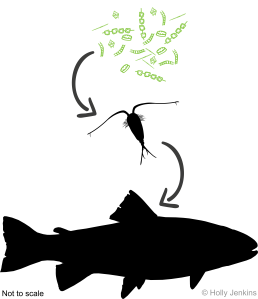Marine Mayhem and Me
Marine mayhem started as a blog of my fieldwork experiences, but it is developing to document my career. I am a PhD researcher based at the National Oceanography Centre in Southampton and the University of Southampton. I receive funding from NERC through the SPITFIRE DTP (the views expressed here are my own only).
What do I do there, you ask? Drink a lot of coffee and write a lot of emails.
But I also get to study the physiology of Arctic copepods. I have recently been on research expeditions to the Arctic, where I emailed tales of my awkward vegan diet to Trina Davies – the witty wordsmith/editor – to post on here:
1. Vegan at Seagan
2. Vegan at Sea again
Copepod research isn’t all I have focused on. For a more thorough record, please see the professional pages and check out my ORCHID record: orcid.org/0000-0002-1055-642X.
My interests
The impact we’re having on the world around us has always been my focus, both in my personal and professional life. Research I’ve been involved in has varied in topic around climate change and land-use change, and how they affect life – from the tiny microbes right through to humans.
Copepods
Copepods are the most numerous animals on the planet, present in almost every lake, river and ocean. They’re vital parts of oceanic food chains: they eat the phytoplankton – the plants of the ocean – and condense all that energy into their lovely energy-rich fat sacs which feed baby fish, adult fish, seabirds, whales. Bascially, everything. Yet they’re smaller than a grain of rice.

Also, copepods poo. And this isn’t some gross everyday poo, this crap does big things. It can aggregate and sink to the bottom of the ocean and act as fertiliser for life down there. Copepods even move themselves – they hibernate in the deep during cold winters in a process called diapause. These processes by tiny animals move carbon and fats around the ocean on huge scales. They indirectly take carbon drawn from the atmosphere and store it at depth. They are each little, unintentional eco-warriors
But the Arctic is warming 2-3 times faster than elsewhere on the planet. The phytoplankton is changing with the climate. The compounds available to copepods will not be the same in the future. I’m researching the detail of this.
What compound is it that the copepods need to sustain their life cycle?